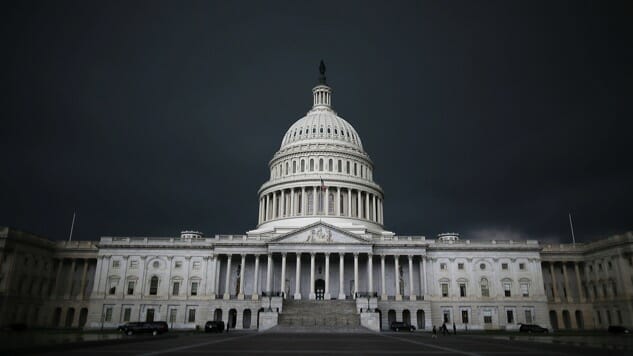Is Democracy All It’s Cut Out to Be?
Photo by Mark Wilson
Democracy is something held up as the pinnacle of human government, a core tenant of the idea behind the United States, and an unquestionable truth never to be questioned.
If we refuse to question not only the structure and function of our democracy but also our underlying beliefs in a critical way when they seem to have failed us, then we are at best in denial and at worst incredibly naive.
As Churchill once said, “Democracy is the worst form of government, except for all the others.”
So why not entertain others, if they’re inventive enough?
This is, on some level, the subject Jason Brennan, an Associate Professor of Strategy, Economics, Ethics, and Public Policy at Georgetown, tackles in his recent book, Against Democracy, which challenges some of our underlying assumptions about democracy and the behavior of voters. It goes on to do what few other books that grapple with these same issues do—suggest a solution.
Brennan breaks voters down into three categories: Hobbits, Hooligans, and Vulcans. Hobbits, as one can recall from J.R.R. Tolkien’s novels, aren’t interested in politics and have a low level of political knowledge. On the other hand, Hooligans know more about politics than Hobbits do, but evaluate information in an incredibly biased way, causing them to reject any opposing arguments or worldviews at the onset of an argument or debate. Finally come the Vulcans who, by contrast, are incredibly open-minded, analytical, and knowledgeable.
While many of us imagine ourselves as Vulcans after reading those descriptions, the reality is most of us are some combination of Hobbit and Hooligan.
As Brennan writes in an op-ed for The Los Angeles Times:
“For 60 years, political scientists have studied what voters actually know. The results are depressing. Hundreds of different surveys, such as the American National Election Studies, find that the median voter is ignorant or misinformed not only about the social sciences needed to evaluate candidates’ policy proposals, but even of basic facts and trends, such as what the unemployment rate is and whether it’s going up or down.”
This extends to many of our preconceived notions about voters. “Even moderation is a result of low information,” Brennan says. “So people who don’t know very much tend to pick a middle ground position and not have a very strong opinion about it.” These individuals take a moderate position almost as a default, but as people learn more they tend to become more extreme one way or another, leading to further polarization.
And this, when we think about how we think democracy should occur, might point to the idea it doesn’t function like we believe it does, particularly if we approached the ideas underpinning democracy as principles to be analyzed rather than irreproachable truths. We don’t, for example, allow unqualified people to make medical decisions for us or even come rewire the electricity in our house. These are, particularly in terms of medicine, potentially life or death decisions. The thing is that the people we elect to office are making life or death decisions every day too. Just one example of this recently is the failed raid in Yemen authorized by President Trump, in which a Navy Seal died. But that doesn’t even address the numerous people whose lives are dramatically impacted by domestic policy decisions.
-

-

-

-

-

-

-

-

-

-

-

-

-

-

-

-

-

-

-

-

-

-

-

-

-

-

-

-

-

-

-

-

-

-

-

-

-

-

-

-








































